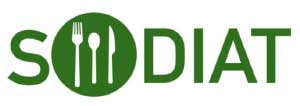Well-being and Health Assessment Research Unit
SODIAT
 Nutrition surveys aim to understand how usual diets impact health. We rely on people telling us what they have eaten in the last day, week or month. It is, however, it is difficult to remember exactly what and how much we have eaten, and recording is associated with bias and inaccuracy. Self-report surveys such as FFQs struggle to capture the range of diets in the UK, and sometimes do not reach remote, rural and deprived populations. Recent research has demonstrated that metabolites derived from individual foods present in urine samples provide potential biomarkers of dietary exposure, and including such measurements could overcome some of the limitations of traditional dietary assessment methodologies by providing additional objective estimates of food exposure
Nutrition surveys aim to understand how usual diets impact health. We rely on people telling us what they have eaten in the last day, week or month. It is, however, it is difficult to remember exactly what and how much we have eaten, and recording is associated with bias and inaccuracy. Self-report surveys such as FFQs struggle to capture the range of diets in the UK, and sometimes do not reach remote, rural and deprived populations. Recent research has demonstrated that metabolites derived from individual foods present in urine samples provide potential biomarkers of dietary exposure, and including such measurements could overcome some of the limitations of traditional dietary assessment methodologies by providing additional objective estimates of food exposure
Currently, no single tool can accurately measure all aspects of the diet, however, there are lots of emerging ways in which we can assess diet.
The Diet and Health Research Group in DLS, have been responsible for developing a dietary intake biomarker panel which can objectively report individual’s habitual dietary intake through the use of remote, home-collected urine samples
(https://sodiat.org/)is a five-year Programme Grant (started in September 2022) funded by the Medical Research Council and Biotechnology and Biological Sciences Research Council, that is led by Prof John Draper at Aberystwyth University (with Manfred Beckmann, Amanda Lloyd, Thomas Wilson), and includes the University of Reading (Julie Lovegrove and Rosalind Fallaize), Imperial College (Gary Frost and Benny Lo) and MRC Epidemiology Unit at Cambridge (Albert Koulman).
The project aims to use new and novel ways to assess diet, including urine and finger-prick blood samples to test for ‘biomarkers’ of food and beverage consumption, providing objective data. Wearable cameras and artificial intelligence software will help to confirm the type and amount of food eaten. Additionally, new online tools will make it easier for self-reporting.
The overall desired outcome is to develop a combined tool utilising these modern techniques to assess diet more accurately. The optimal combination of these emerging methods will be determined to create an easy-to-use and low-cost tool able to capture all aspects of the diet remotely and with minimal burden. This combined tool could be used by Government and other policy makers, as well as Health Boards to assess the success of efforts to improve people’s health and give better dietary advice.
